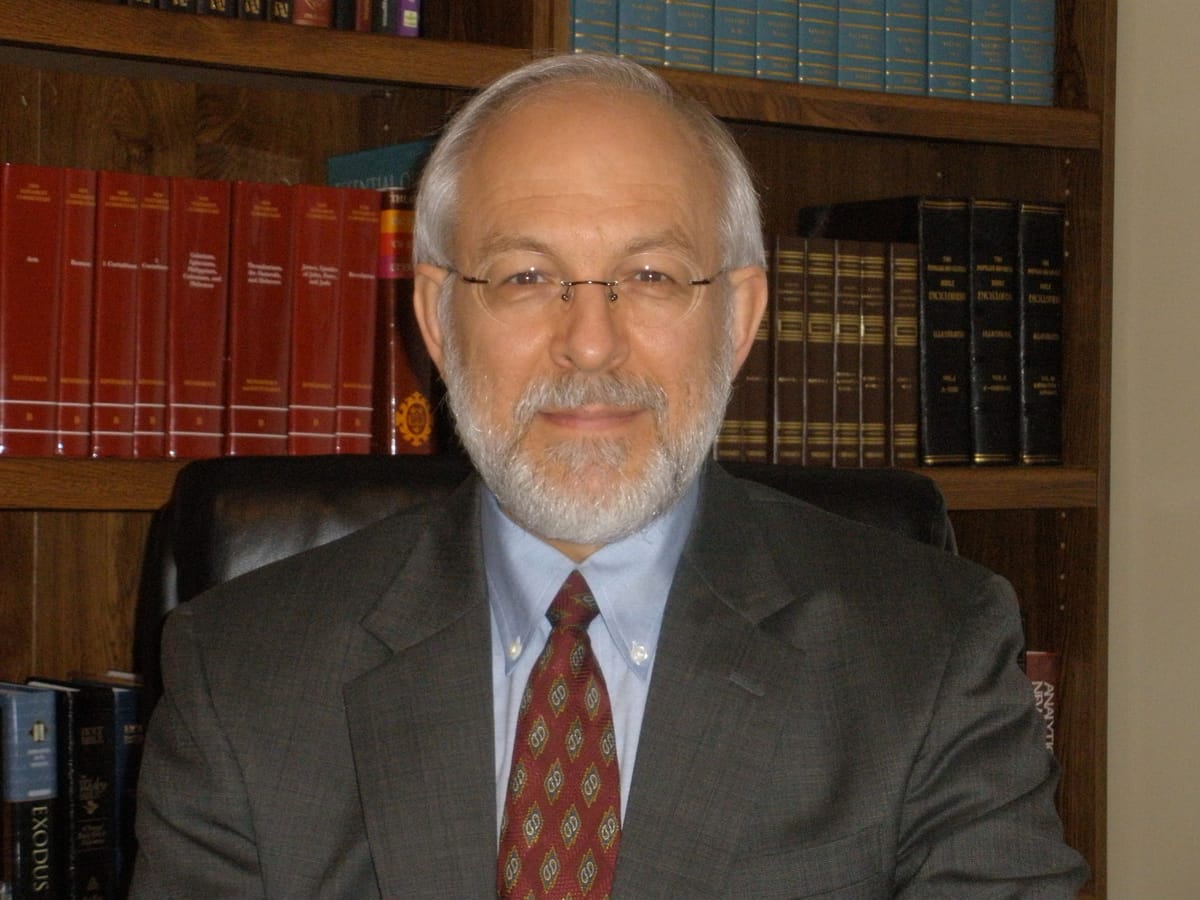Chapter 2, Section 4: Plenary and Verbal Inspiration
When speaking of the Holy Scriptures, we can become confused when we hear the word “inspired.” Previously, we represented the Bible as the “out-breathing” of God’s Word. Let’s flesh out that idea. Often times we hear people say, “Well, when Paul was inspired to write his epistles…”
Indeed, he was, but let us look into that word a bit deeper. In the New Testament (NT) of our KJV, the word “inspiration” occurs only once.
2 Timothy 3:16 All scripture is given by inspiration of God, and is profitable for doctrine, for reproof, for correction, for instruction in righteousness:
The word “inspiration” in the Greek is theopneustos. It is possible that Paul himself coined the word since it had appeared nowhere else, either in the other NT Scriptures or in the ancient secular Greek language, as it is not listed in Liddell & Scott’s Greek–English Lexicon.
Liddell & Scott is the standard lexicographical work for the ancient Greek language. It covers Greek literature from the 11th century B.C. to the Byzantine period, including the works of Homer, Hesiod, and other classical Greek authors, as well as the Greek Old and New Testaments.
In both English and Greek, the direction of the breath is from God to the recipient (and thence to the writings). Theopneustos is a compound word derived from theos, meaning “God,” and pneo, meaning “to breathe” or “blow.” It is most accurately translated as “God-breathed” or “breathed out by God,”
This compound word thereby emphasizes the divine origin and authority of the Bible. It demonstrates that the Bible was not merely influenced by God but is wholly a product of His own in-breathing or out-breathing, analogous to God breathing (out) life into Adam (Genesis 2:7).
Thus, when we say that “All scripture is God-breathed” it emphasizes the comprehensive and infallible nature of the written Word, confirming its reliability and sufficiency “for doctrine, for reproof, for correction, and for instruction in righteousness.”
We also had briefly mentioned the types of inspiration: “plenary inspiration,” “verbal inspiration,” and the third is known by a number of different terms: “thought inspiration,” “conceptual inspiration,” or “dynamic inspiration.” In short, the last three mean virtually the same thing.
We also discussed the various positions that Christians take on the issue of the inspiration of the Bible, but we must obviously limit our discussion to those who honestly claim to believe that the Bible is inspired. Among them, there is a very tiny minority of people who go on to say that the English words in the KJV are inspired and that there are no mistakes within it.
As far as I can determine, no one claims that any other version is inspired in the English language. If you perchance are talking with someone who claims to be a Christian but who does not believe the Bible is inspired, we are not including their views in this discussion concerning the inspiration of the Bible.
Then there is a vastly larger number of believers who hold to the position, which is one of the views of historic Protestantism, and is represented by the Westminster Confession of 1646, the Savoy Confession of 1652, the London Baptist Confession of 1677, the Philadelphia Baptist Confession of 1743, and probably a number of others.
These believe that even though we do not have the inspired original manuscripts any longer, that God did preserve His Word, 100 percent intact and accurate in the manuscript copies (of copies of copies) that we do have. The manuscripts that are extant today are written in Greek and Hebrew, not in English. Therefore, they conclude that God’s Word is available to us today.
Now, in brief review, we previously discussed how we know that the Bible is inspired. There are probably more ways than we mentioned, but we expounded six different ways.
First, we talked about the amazing unity and uniqueness of the Bible. We then mentioned fulfilled prophecy being a proof of the Bible’s inspiration. We spoke about how miracles have attested to the integrity and veracity of the Scriptures.
We discussed about how the Bible has changed the lives of countless individuals. The Bible has changed the life of a nation in numerous cases, and we cited an example or two.
We discoursed about providential preservation in slight detail (more later). We also know that the Bible is inspired because it says it is. We refuted the claim that it is circular reasoning, meaning that one cannot use the Bible to prove the Bible. We amply and logically demonstrated that it is not really circular reasoning at all.
Then we discussed what the Bible says about itself and of its own inspiration. How was inspiration expressed in the Bible? How it was it accomplished? In other words, what was the mode—through dreams, visions, a voice, or in some other way?
We also noted what the Bible says that it will do. What are the results of the Bible being extant in any given civilization or in a person’s life, etc.? Finally, we concluded by exhorting us all to be mindful of our attitude towards the Holy Writings.
One attitude that we will not have is indifference. If we were indifferent about the Bible, we certainly would not be reading this book. However, woe to us if our attitude is one of pride—that we think our finite minds can figure out the mind of God.
This would be manifested in the attitude of a person who thinks that he will not believe the Bible until he can prove every word of it is true. This man will die in his sin of pride.
Rather, we suggested that our attitude should be one of humility, recognizing that God’s thoughts are infinitely higher than our thoughts, but that at the same time, He has not left us floundering and without guidance.
He has deigned to give us His Word, a written record of the revelations that He has given to man, and in the end, we are far better off by first believing that it is His Word, by exercising faith. Then He will show us, with ever-increasing assurance as we grow, that the Bible is indeed inspired.
Having expounded in general about the inspiration of the Bible, we concluded that we needed to go deeper into the topics of biblical inerrancy and the plenary and verbal inspiration of the Scriptures. That is where we now continue.
A word of reminder is in order concerning the basic presuppositions that we stated at the very outset. We are not here to try to convince an atheist that there is a God. We presuppose that the reader already believes that. Another presupposition is that God is knowable. We are not trying to convince the agnostic that you can know God. We assume that the reader already agrees to that.
We also presuppose that God is knowable through His Word, and therefore the Bible is our highest and absolute authority—not the traditions of men and the commandments of men, such as in the Roman Catholic Church.
Our focus in this study is on “which version of the Bible, in English, is God’s Word?” Are any of the versions in English, 100 percent accurate? Moreover, if we find that none are, then which is the most reliable that we perhaps ought to be using?
Let us delve into plenary and verbal inspiration. “Plenary” simply means that the Bible is completely inspired—inspired in its entirety. A helpful hint to remembering what plenary means is found in this simple illustration. It is related to the word “plenty.” When you have finished eating dinner you have had plenty, you are full. The Bible is plenty inspired—fully.
Closely related to plenary inspiration is verbal inspiration—verbal meaning having to do with words. Therefore, verbal inspiration means that every single word in the Scripture is inspired.
God spoke every single word in the original manuscripts, the ones that Isaiah, Jeremiah, John, Peter, and Paul et al. wrote. The original manuscripts that those Bible authors actually wrote, the original scrolls, are known as “autographs.”
There is plenary and there is verbal inspiration. They are closely related and yet it is a well-known fact that many Christians claim to believe in the plenary inspiration but not the verbal.
They say that the Bible is true in all its concepts and ideas, although the particular words may not be. They believe that God somehow put His basic thoughts and ideas into the minds of the human Bible authors, and then they took those divine ideas and put them in their own words.
Thus, we have, according to these people, a Bible that is totally correct in all the ideas that are set forth in the Scripture, although the words that the various authors may have chosen to have conveyed God’s ideas are not themselves God’s own Words. Do you see any problem with that? I do.
Allowing that the ideas are inspired leaves everything far too vague. Even among those of us who believe that the very words are inspired in the autographs, we have many more debates over the meaning of Scripture than we would like.
Imagine how much further room there is for argument when one cannot even rely on specific words in the Bible. Virtually nothing could ever be established as the truth of the Bible.
With conceptual inspiration—which is what this is—one is opening a Pandora’s box that will lead to a spiritual shipwreck. Is there any support for plenary but not verbal inspiration? The theories of men support it; however, Scripture does not support it as far as I have been able to determine. It is simply scripturally untenable. But are there some verses which do seem to support that position? Yes. For example:
Isaiah 55:8 For my thoughts are not your thoughts, neither are your ways my ways, saith the LORD [Yahweh].
9 For as the heavens are higher than the earth, so are my ways higher than your ways, and my thoughts than your thoughts.
They might also bring forth this verse:
Psalm 92:5 O LORD [Yahweh], how great are thy works! and thy thoughts are very deep.
From these verses, we learn that God’s thoughts are both higher than man’s thoughts and that God’s thoughts are very deep. However, we find it very doubtful that those verses can, by any stretch of the imagination, be said to prove or even strongly support the theory of so-called “conceptual inspiration” of the Scriptures.
Leave that aside for now. The untenability will become more clear as we proceed. What support is there for verbal inspiration, which is a necessary corollary of plenary inspiration? There is a great deal of support, and not merely from the theories of men, but from the Bible itself.
From this point on, we are not going to be concerned with the charge from critics and unbelievers that we are using circular reasoning—using the Bible to prove the Bible. We have shown the falsehood of the circular reasoning charge earlier.
The purpose of this study is which version is the most accurate or true. There is a general agreement of about 99.5 percent among scholars on the words contained in the manuscripts. Hear me carefully. I did not say that the scholars agreed largely on what the words in the Greek and Hebrew mean, but they agree on what they are.
Does the Bible tell us if Yahweh considers only His “concepts” and “ideas” as essential, or did He give some special emphasis to His very words? Let’s take a look:
Exodus 19:6 And ye shall be unto me a kingdom of priests, and an holy nation. These are the words which thou shalt speak unto the children of Israel. [Emphasis added]
Let me substitute for “the words” in the text and see if individual words are important:
Exodus 19:6 And ye shall be unto me a kingdom of priests, and an holy nation. These are the ideas and concepts which thou shalt speak unto the children of Israel. [Emphasis added]
That puts a different spin on it, does it not? How about Deuteronomy 4?
Deuteronomy 4:12 And the LORD [Yahweh] spake unto you out of the midst of the fire: ye heard the voice of the words, but saw no similitude; only ye heard a voice. [Emphasis added]
Again, my substitution:
Deuteronomy 4:12 And the LORD [Yahweh] spake unto you out of the midst of the fire: ye heard the voice of the ideas and concepts, but saw no similitude; only ye heard a voice. [Emphasis added]
This makes nonsense of the Word of God. Even that very term that we call the Bible; namely, “The Word of God” was how God Himself describes the sacred writings. He does not call His Bible, “The Concepts of God.” In the New Testament, the Gospel of Luke speaks of the Word of God:
Luke 4:4 And Jesus answered him, saying, It is written, That man shall not live by bread alone, but by every word of God. [Emphasis added]
Hear the words from the Book of Matthew:
Matthew 24:35 Heaven and earth shall pass away, but my words shall not pass away. [Emphasis added]
Some who deny the verbal inspiration of Scripture occasionally exaggerate our position by charging that we believe that even the punctuation and the capital letters are inspired.
That is sheer nonsense because there is no punctuation in the manuscripts, and in fact, some of the manuscripts are in all capital letters, which are called uncials. (Uncials will be discussed in due time.)
(To be continued.)
~END~




